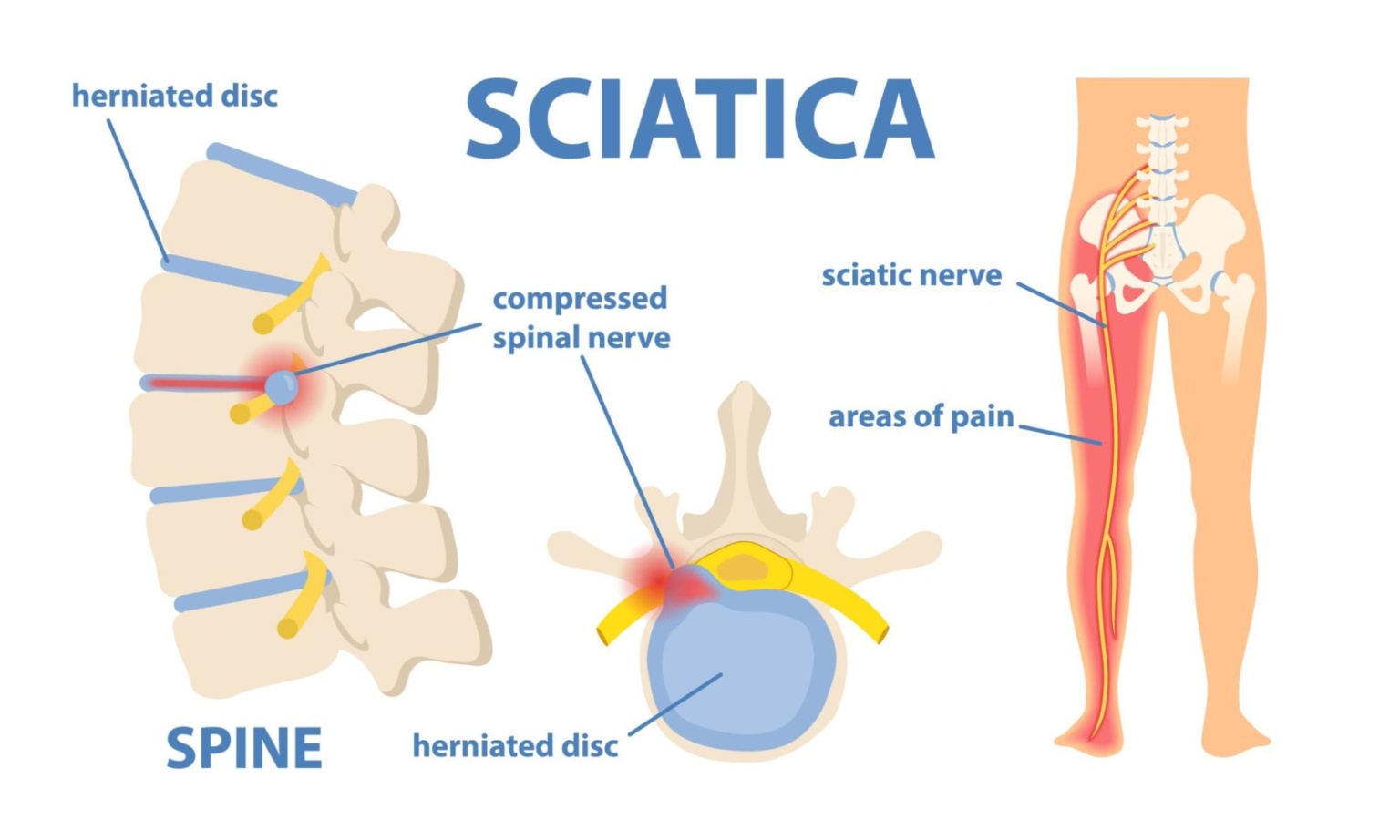What is Sciatica .Causes and Treatment

What is Sciatica?
Sciatica refers to pain that radiates along the path of the sciatic nerve, which branches from the lower back through the hips, buttocks, and down each leg. It's often caused by compression of the nerve roots in the lower spine.
Sciatica refers to pain that radiates along the path of the sciatic nerve, which branches from your lower back through your hips and buttocks and down each leg. It's often caused by compression of the nerve roots in the lower spine.
Causes of Sciatica
Sciatica can result from various conditions or injuries:
- Herniated or slipped discs
- Spinal stenosis
- Degenerative disc disease
- Sciatic nerve irritation due to muscle strain
- Spinal tumors or infections (less common)
Symptoms
Common signs and symptoms of sciatica include:
- Lower back pain
- Pain in the buttocks or leg that worsens when sitting
- Numbness, tingling, or weakness in the affected leg
- Difficulty in standing up or walking due to sharp pain
Treatment Options for Sciatica
The treatment for sciatica aims to alleviate pain and improve mobility. It usually includes:
- Medications: Over-the-counter pain relievers, muscle relaxants, or prescription medications to reduce pain and inflammation.
- Physical Therapy: Specific exercises and stretches to improve flexibility, strengthen muscles, and relieve pressure on the sciatic nerve.
- Hot/Cold Therapy: Applying heat or cold packs to the affected area to alleviate pain and reduce inflammation.
- Epidural Steroid Injections: Injections directly into the affected area to reduce inflammation around the nerve.
- Alternative Therapies: Some individuals find relief through acupuncture, chiropractic care, or massage therapy.
- Surgery (In Severe Cases): Surgical procedures might be recommended for cases where nerve compression is severe or if conservative treatments fail to provide relief.
Natural Treatments for Sciatica
Alongside conventional treatments, some natural remedies and lifestyle changes may help alleviate sciatica symptoms:
- Regular Exercise: Engaging in low-impact exercises like swimming, walking, or yoga can strengthen the back muscles and reduce nerve pain.
- Heat and Cold Therapy: Applying ice packs or heating pads to the affected area can help reduce inflammation and alleviate pain.
- Herbal Remedies: Certain herbs such as turmeric, ginger, and devil's claw possess anti-inflammatory properties that may ease sciatic pain.
- Essential Oils: Some individuals find relief from sciatica by using essential oils like peppermint, lavender, or chamomile for massage or aromatherapy.
- Healthy Diet: Consuming anti-inflammatory foods like fruits, vegetables, nuts, and fatty fish may contribute to reducing inflammation and managing pain.
- Correct Posture: Maintaining good posture while sitting or standing can prevent worsening of symptoms.
It's essential to consult with a healthcare professional before trying any new treatment or remedy, especially if you have underlying health conditions or are pregnant.
Medicines and Pain Relievers
Medications can help manage sciatica pain and discomfort. Some common types of medications used include:
- Nonsteroidal Anti-Inflammatory Drugs (NSAIDs): Over-the-counter drugs like ibuprofen (Advil, Motrin) or naproxen (Aleve) can help reduce inflammation and alleviate pain.
- Acetaminophen: It's a pain reliever but doesn't reduce inflammation. It's often used when NSAIDs cannot be tolerated.
- Muscle Relaxants: These medications can help relax tight muscles that might be aggravating the sciatic nerve.
- Prescription Medications: In some cases, doctors may prescribe stronger pain medications or anti-seizure drugs that can help with nerve pain.
- Steroid Injections: Corticosteroid injections directly into the affected area can help reduce inflammation and pain around the sciatic nerve.
Always consult a healthcare professional before taking any medications, as they may have side effects or interact with other medications.
